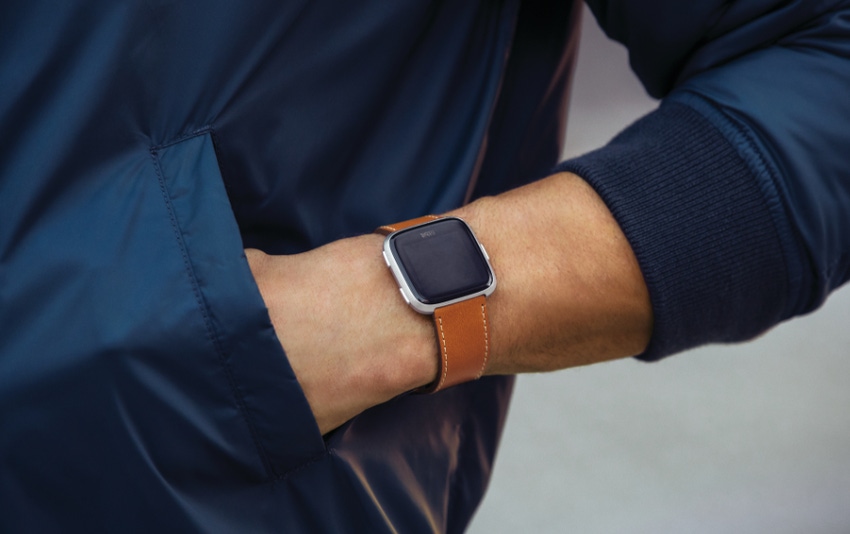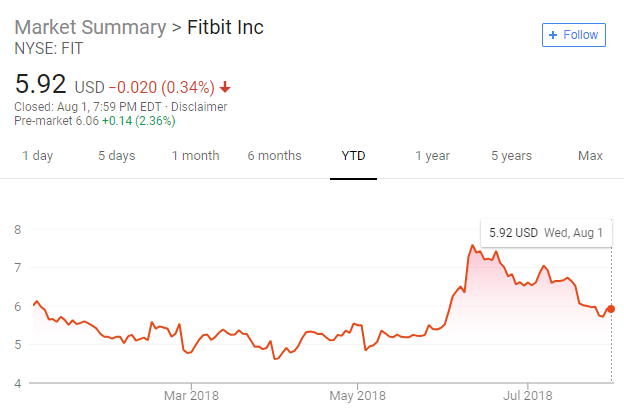Fitbit might not be turning in the results of yesteryear, but riding the wave of Versa to beat analyst expectations demonstrates there might be mass-market appeal for the brand.
August 2, 2018

Fitbit might not be turning in the results of yesteryear, but riding the wave of Versa to beat analyst expectations demonstrates there might be mass-market appeal for the brand.
Total revenues stood at $299.3 million for the three months ending June 30, and while this is still considerably down on the $353.3 produced in the same period for 2017, it beats expectations from analysts. The success for this period has been attributed to Versa, the team’s attempt to break away from the fitness-tracking niche and enter into the mainstream smartwatch market.
“Our performance in Q2 represents the sixth consecutive quarter that we have delivered on our financial commitments, made important progress in transforming our business, and continued to adapt to the changing wearables market,” said CEO James Park.
“Demand for Versa, our first ‘mass-appeal’ smartwatch, is very strong. Within the second quarter, Versa outsold Samsung, Garmin and Fossil smartwatches combined in North America, improving our position with retailers, solidifying shelf space for the Fitbit brand and providing a halo effect to our other product offerings.”
Overall, Fitbit sold 2.7 million wearable devices across the quarter, with the average unit price increasing 6% year-on-year, primarily down to the newer product releases. Those devices released in the last twelve months accounted for 59% of total revenues, providing confidence in the brands ability to diversify from the niche which has served it so well through the underwhelming years for wearable devices.
Fitbit launched the Versa on 16 April and boasted about selling one million devices just over one month later. The product is more in-line with what you would have expected from a smartwatch device, moving beyond the fitness tracking niche Fitbit has become known for. Just looking at the device demonstrates the shift, though what’s on the device is what counts, as it features all the apps we have become accustomed to. It is a big move from Fitbit, and it looks to have worked.
Perhaps this is a positive sign for the wearables industry on the whole. For years, Fitbit appeared to be the only wearables brand which could survive as devices failed to meet the expectations of consumers. Maybe the consumer was not ready for the wearables craze, but the simplicity of Fitbits fitness trackers worked. In being able to move out of the niche and into mass-market appeal, this might be a sign the general public is ready to embrace wearables on the whole.
Looking at the share price, it is still way down on the peak from 2015, some 87%, but there have been signs of recovery across 2018. There is a notable dip in the last 5-6 weeks, though should Fitbit be able to maintain this venture into the mainstream market, we can only see the share price going up.

About the Author(s)
You May Also Like








.png?width=300&auto=webp&quality=80&disable=upscale)


_1.jpg?width=300&auto=webp&quality=80&disable=upscale)


.png?width=800&auto=webp&quality=80&disable=upscale)